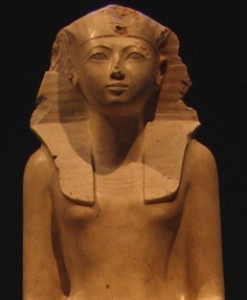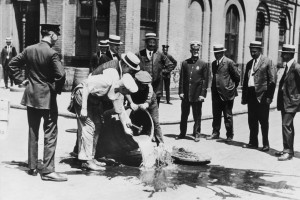Dr. Amanda Foreman explains the legacy of Pharaoh Hatshepsut, one of ten powerful women highlighted by the BBC for their political accomplishments:
‘. . . And the greatest of Egypt’s known ruling Queens was Hatshepsut. She came to power in the 15th century BC as the regent for her stepson Thutmose III; but it was how she ruled for over 2 decades that demonstrates her genius for government. Hatshepsut appropriated for herself the symbols of kingship… Famously, her statues depict her wearing the divine pharaonic beard. But just as important was how she concentrated on what Egypt did best. Building and trade. She organised the largest ever trade mission in her country’s history to the land of Punt. Her legacy was peace and prosperity. But even in Egypt there’s a sting in the tale. We don’t know why, but after her death, the next Pharaoh literally defaced Hatshepsut from the public record. In a sense, she represents the fate of so many women, not just in the ancient world, but throughout all of history.’
Read more here: http://www.bbc.co.uk/timelines/zp9qmp3














